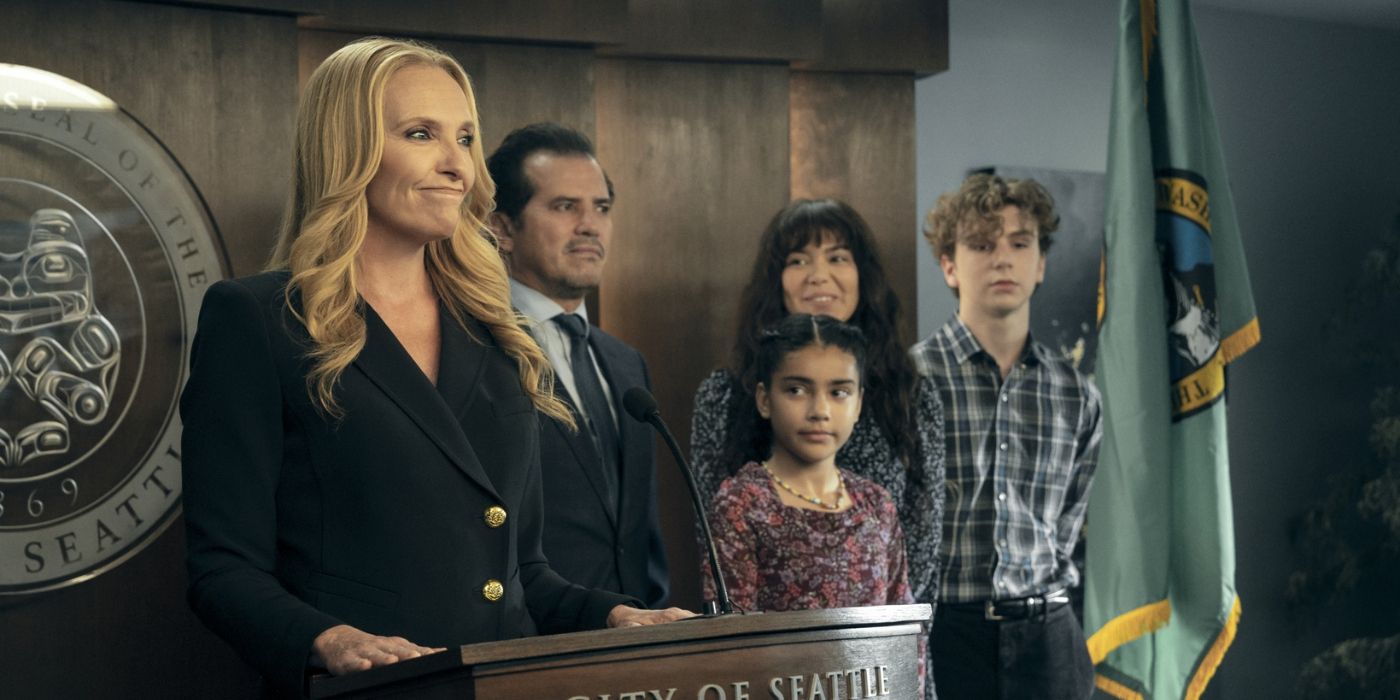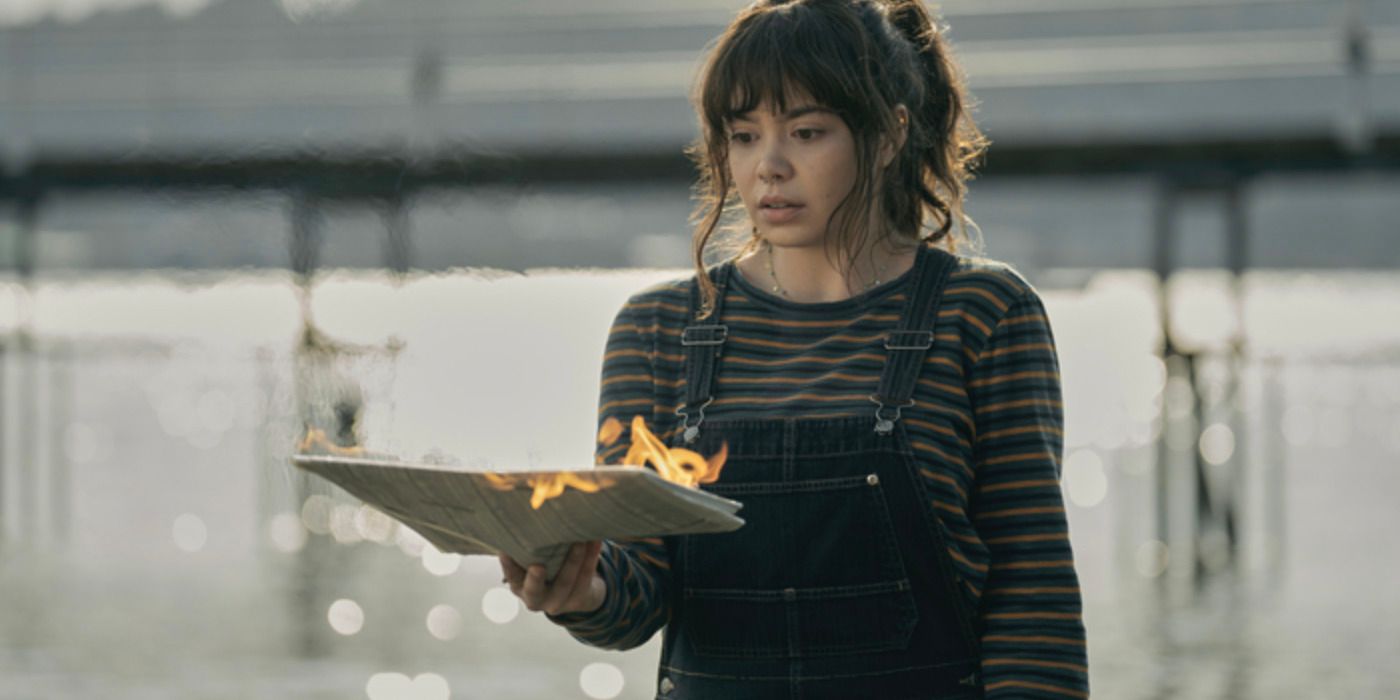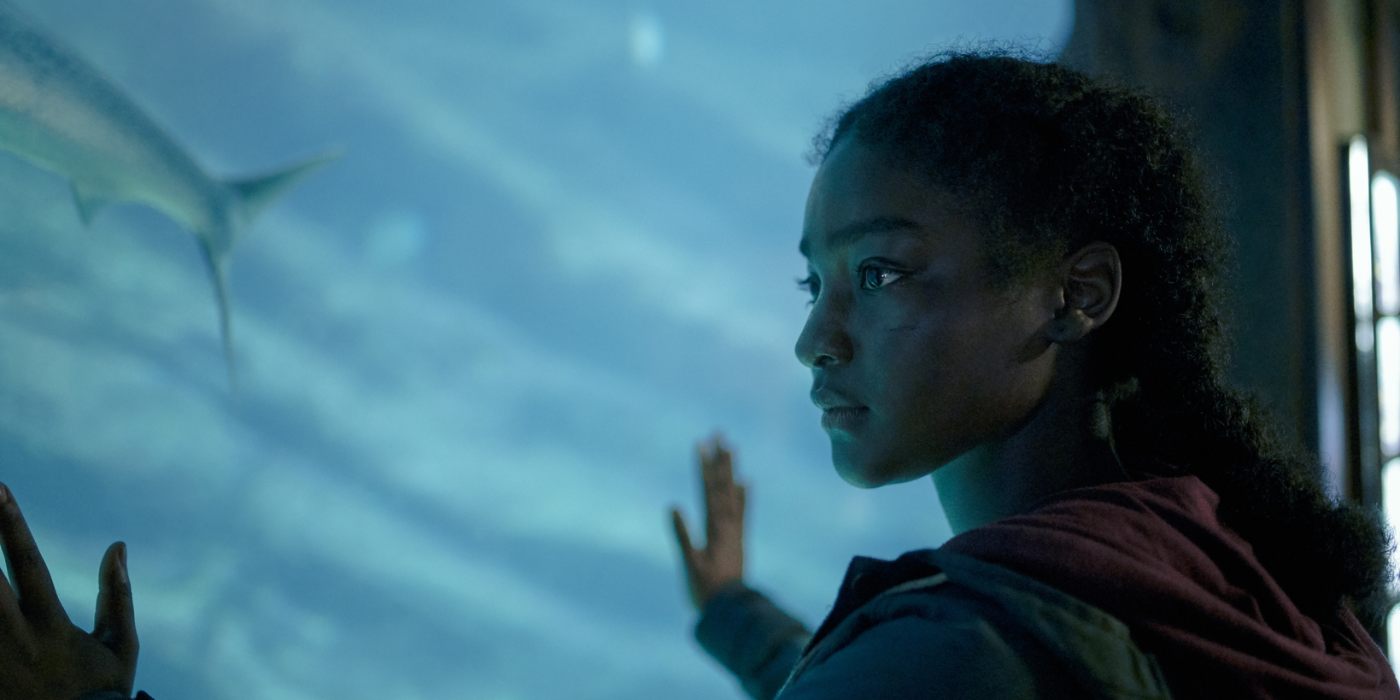In any discussion of a series that attempts to adapt a beloved novel, of which this year has already seen several tries to mixed results, a balance must be struck between comparing the two versions of the story and evaluating them on their own distinct terms. Obviously, the visual language of television is vastly different from the written word and must operate with the tools that are available to it. At the same time, there is the potential for the ideas first introduced in its source material to be given new life and energy on screen.
In Prime Video's science fiction series The Power, there are glimpses of this throughout; it tells the story of what would happen if women and girls gained a power that allowed them to emit electricity. Based upon the 2016 novel of the same name by Naomi Alderman, the show captures many of the broad aspects of how this all plays out while exploring some new elements of its own. Unfortunately, many of its alterations and expansions feel simplistic, crowding out the more complicated reflections that made the book so incisive. Over the eight episodes of the nine-episode season shared with critics, it feels like it is only just scratching the surface of what made Alderman’s work so gripping. There is some awe to be found in what is uncovered, but this initial introduction can only hold a candle to the full scope of the story it is drawing from.
Following an ensemble cast of characters just like the novel, the series traces the way the modern world could be forever reshaped by these new abilities. Some of this is more grounded in social interactions, but there is a growing sense that the very power structures themselves could soon be upended. While no character knows this when it all begins, each will soon get swept up in and try to make sense of this new world they are on the precipice of. Ambitious Seattle mayor Margot (Toni Collette) and her rebellious daughter Jos (Auli'i Cravalho) find themselves at the forefront of the events, even more than they were in the original story. Building a movement is the almost celestial Allie (Halle Bush), who discovers she not only has a voice to guide her but may just have a strength that is greater than any on Earth. Seeking revenge is the scrappy Roxy (Ria Zmitrowicz) who endures a tragic loss early on in both the novel and the series that only she seems to care about. Looking to gain power of her own by any means necessary is the patient Tatiana (Zrinka Cvitešić), the wife of a far older dictator whose male-dominated political empire underestimates her. Trying to capture all the growing changes and upheaval is burgeoning journalist Tunde (Toheeb Jimoh) who gets some of the first video footage of the power that will change the world.
What proves to be the most intriguing part of the series is when we get the full sense of just how powerful the characters are becoming. When Allie finds herself roaming alone, becoming almost one with the natural world and the energy flowing through all of it, it is a striking scene of many that the show does a good job of bringing to life. We feel the way she is tapping into something and believe every moment of the first steps she is taking on her journey. Even as there are other storylines that make use of CGI that is distracting to no end, the more grounded instances with Allie shine through. Similarly, there are several well-staged sequences where Tunde observes women taking to the streets in the early stages of a revolution that will sweep across entire countries.
Many of these scenes are lifted directly from the book, calling attention to the way the women can now rescue others from the casual yet cruel subjugation taking place every day. While there isn’t the rich imagery of the novel where we got glimpses of Tunde just taking in the smaller snapshots of discovery alongside the more explosive ones, these sequences still tap into something more dynamic. They feel organic and lived in, really immersing us in the world as characters are traveling through the street. There is a sense of truthfulness to it as we see the cost that comes from rising up while also getting the chance to observe how various corners of the world are being shaped. Where the series starts to encounter problems is when we step away from these moments to focus on storylines not present in the novel.
Where the novel strikes a confident balance in having all the other characters navigate their own storylines that begin to increasingly intersect, the series expands on Margot in a way that starts to drag down all the rest. Scene after scene with her occasionally dorky husband Rob (John Leguizamo) seeks to show how they are drifting apart, but the storyline doesn’t carry any greater weight. What seems to be repeated attempts at humor about marriage and the more interpersonal dynamics of Margot’s life start to feel very out of place with the trajectory of the rest of the characters. It is not that there can’t be moments of comedy, especially as the book is often darkly funny all the way from its winking introduction to its biting final line. It's simply not that interesting to see this playing out when the more interesting chapters of this unfolding story are just out-of-frame. Those elements remain far more dynamic and end up feeling like they are being subsumed by this subset of the story. In addition to the structural hangups this creates, the fact that Margot is made to be from Seattle, when she was in Michigan in the novel, feels like an odd change that is without much thematic purpose — that is, unless one were to try to read it as being some sort of riffing on the real-life former embattled mayor of the city. Even then, the more interesting elements of where these stories are all going are too often taking place elsewhere.
Without tipping off anything about where the story is going, since it is clearly setting up for a second season (with much from the novel that hasn’t even been touched on), what Alderman does so well is in the tonal shift that starts to take hold. Although there is much that is liberating in observing injustice be set right, there are key passages that begin to show this may come apart. When characters reference the power — in this case, the electrical charge they can put forth — it is more than just the science fiction element. It is the power to hurt, to control, and to destroy. In Roxy’s story, leading up to a sequence of extreme violence, she thinks to herself that the power to hurt “is the only thing worth having.” In Allie’s story, right before a similar act of violence, she justifies what she is about to do to herself with the logic that “the only way to be safe is to own the place.”
When the shoe drops in the novel, what Alderman delicately reveals is that there is the potential within all to cause immense harm to others that may just feed itself until everything is consumed. All of this is ratcheted up with more dexterity in her hands. However, there is a sense this is looming in the series and could come more prominently into focus. Unfortunately, at least for now, the plot of the show is incomplete and only hints at the deeper ideas from the original story, which still stands alone in all it managed to achieve. The first season of The Power still lays a serviceable if frequently slight foundation for it to dive into the darker elements that made the novel such a sharply sinister work.
Rating: B-
The Power premieres March 31 on Prime Video.



